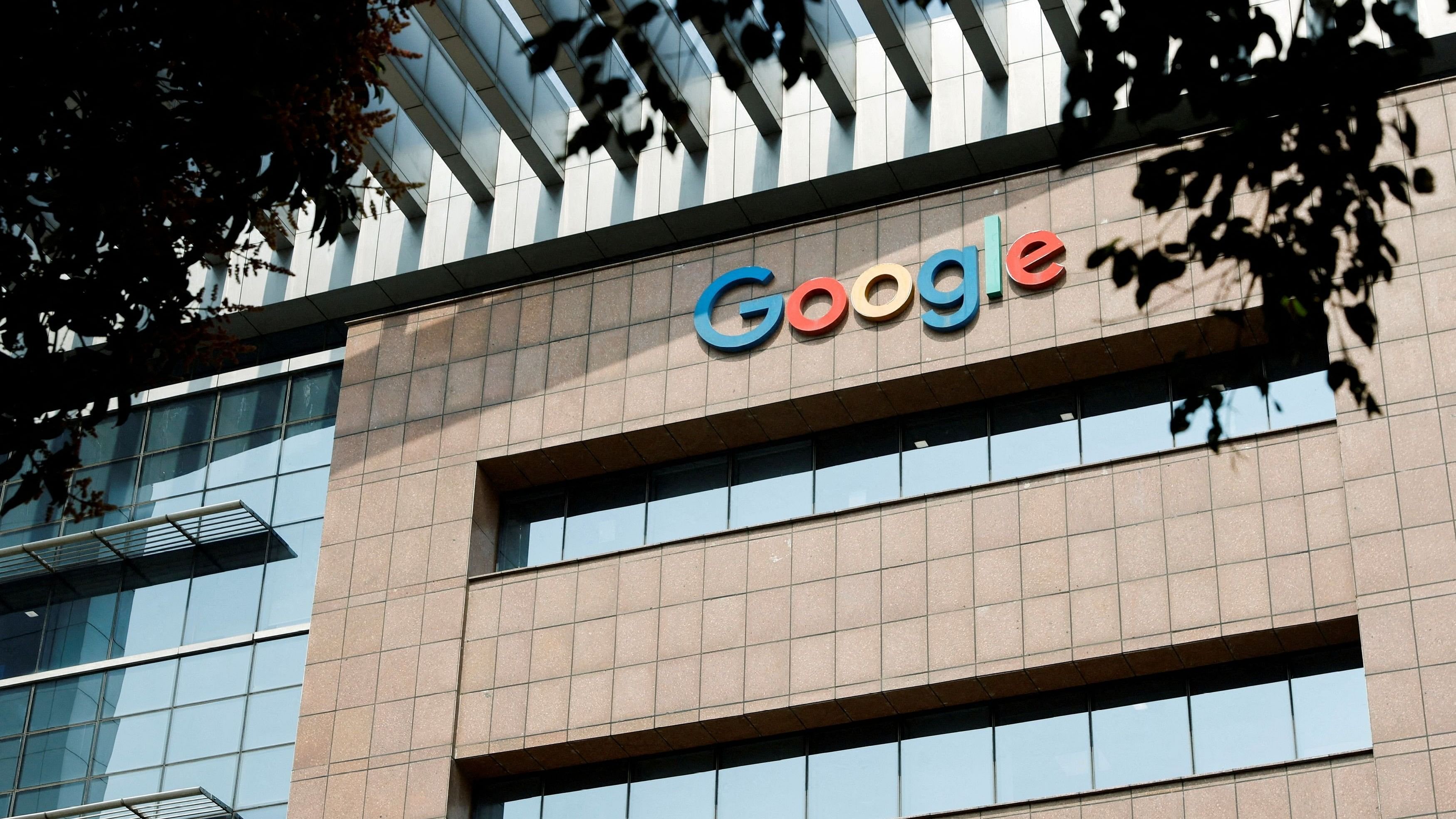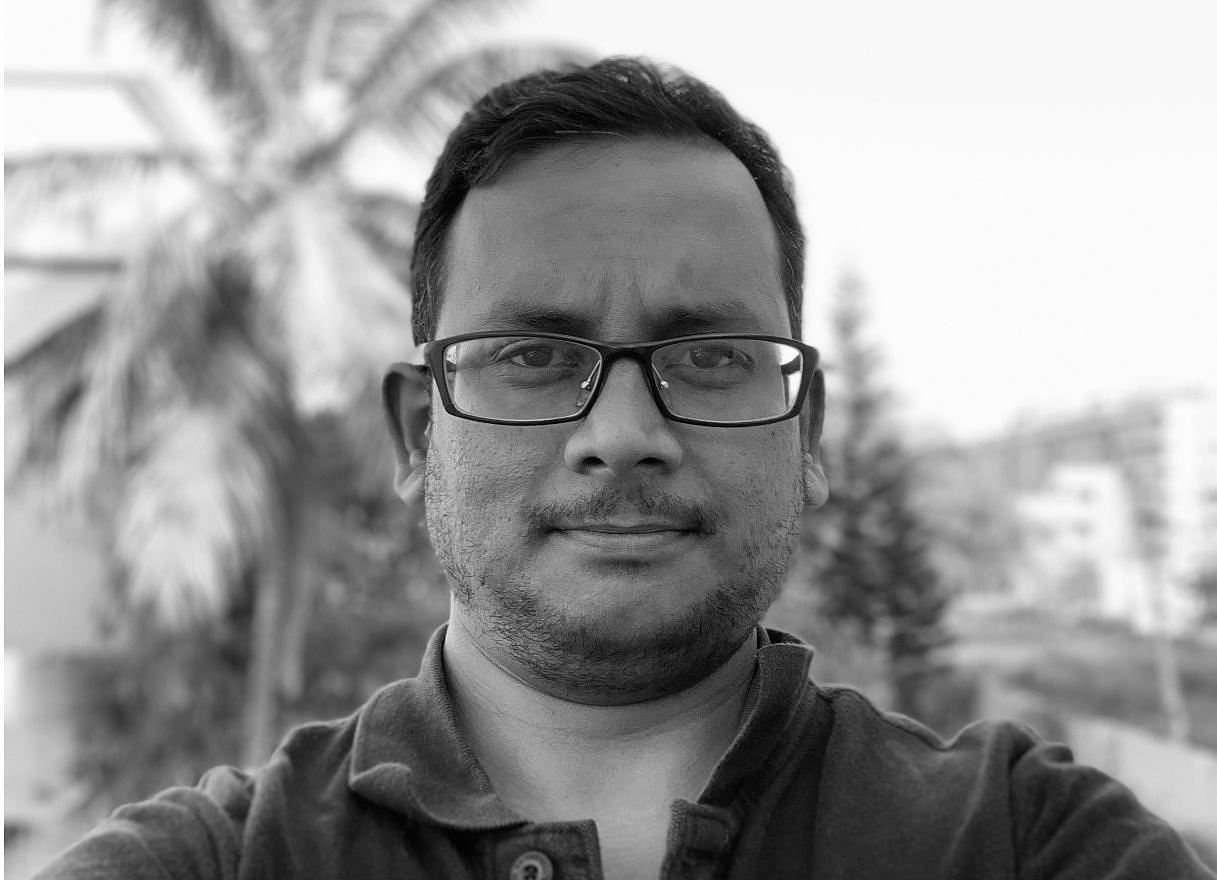
FILE PHOTO: A logo of Google is seen on its office building.
Credit: REUTERS/Francis Mascarenhas
Bengaluru: Mountainview-based Google on Thursday (October 17) announced Artificial intelligence (AI)--led collaborations with local startups in three key sectors-- Agriculture, healthcare and sustainability-- in India.
"At Google, we're not just building AI, but are helping shape a future where AI benefits everyone. Collaborating with key Indian organizations, our focused research in India across language understanding, healthcare, agriculture and sustainability is helping tackle many of the country’s unique challenges and creating AI-led solutions that will improve billions of lives," said Dr Manish Gupta, Research Director, Google DeepMind.
At the Google I/O Connect event earlier this year in Bengaluru, the company announced to launch of the Agricultural Landscape Understanding (ALU) Research API (Android Programming Interface) soon in India. Keeping true to its words, Google now has offered access to ALU to startups, NGOs and government agencies.
Dr. Manish Gupta, Research Director, Google DeepMind.
Credit: DH Photo/KVN Rohit
Global Warming has resulted in erratic weather conditions worldwide and it has become very challenging for governments to increase food production to meet the needs of the growing global population.
Here's where Google ALU Research API can play a crucial role in making agricultural practices more data-driven and efficient.
It can help farmers sustainably grow crops by understanding the soil quality, weather patterns, water requirements, and organic fertilisers to get good yields.
launch Agricultural Landscape Understanding (ALU) Research API.
Credit: DH Photo/KVN Rohit
“The ALU API, developed through collaborations between Google’s AnthroKrishi team and researchers and state and union governments across India, reflects our commitment to empowering India’s agriculture ecosystem. This technology aims to equip the ecosystem with capabilities that enable it to address rising productivity pressures alongside climate threats with targeted interventions. By now opening access to the ALU API to developers, we’re now aiming to see this technology unlock innovative solutions that address the specific needs of Indian farmers, while also guiding India’s agriculture sector towards a more sustainable and secure future,” said Alok Talekar, Engineering Lead, Google DeepMind India.
Healthcare
While India's economy is growing faster than ever, there is a disturbing increase in diabetes among not just old, but youngsters.
Due to fast-paced life, people are less physically active but consume more food leading to passive lifestyle-induced diseases like diabetes, which can affect several important organs of the body such as the heart, brain and legs. But, most people don't know it can even lead to blindness.
Called Diabetic retinopathy, this eye condition progresses slowly, and many people don't realise the deterioration of the eye's health until it's too late.
To help early detection of such things, Google has licensed its diabetic retinopathy AI model to healthcare providers and health-tech partners Forus Health and AuroLab in India.
Machine used by Forus Health Pvt. Ltd to detect diabetic retinopathy.
Credit: DH Photo/KVN Rohit
“From our initial research to the first patient screening in Madurai, India, we’ve been committed to translating AI's potential into meaningful change for people globally. And now the partnerships with Forus Health, AuroLab, and Perceptra are helping us expand on this commitment with our technology, as a global network of innovators rallies together to eradicate preventable blindness due to diabetic retinopathy. Such efforts can help shape a world in which timely intervention reaches even the most remote communities, and the latest advances in tech enable everyone to see a brighter future,” said Sunny Virmani, Group Product Manager, Health AI Research, Google.
This AI model has already helped support more than 600,000 screenings in clinics around the world, and early research and deployment of the model were conducted in India.
Venkatakrishnan S, CTO & Head of R&D at Forus Health Pvt. Ltd. told DH that the company has begun pilot projects in select medical centres in Bengaluru and has big plans to expand commercially nationwide in 2025.
Sustainability
Bengaluru, the Silicon City of India, though prosperous, is facing a huge garbage crisis. Most of the decades-old dumping yards at the outskirts of the city can no longer take waste, so there is an urgent need to develop a sustainable way of reducing the accumulation of waste and recycling is one of the best ways to do it.
Now, Google is offering CircularNet, an open-source machine-learning computer vision model to Saahas Zero Waste (SZW), a Bengaluru-based environmental and social enterprise.
“At Google, we believe in the power of AI to build a more sustainable future for everyone. Our collaboration with Saahas Zero Waste demonstrates the potential impact of circular ecosystems, where valuable resources are reused instead of being discarded. We’re excited for Saahas Zero Waste’s deployment of CircularNet to help transform waste management in India. By enabling more efficient recycling and a truly circular economy for plastics, together we can work towards a more sustainable future for communities in India and across the world,” said Sujit Sanjeev, Lead, CircularNet, Google.
Saahas Zero Waste kiosk scanning plastic waste.
Credit; Google India
SZW has started a pilot of CircularNet’s AI model at its material recycling facility in Anekal. The company told DH that it has achieved around 85 percent accuracy in detecting high-quality plastic waste, which has potential improve their revenue generation by up to 10-12 percent.
The high-quality plastic waste can be delivered to recycling plants to make sustainable products.
“Saahas Zero Waste is committed to the evolving waste management ecosystem in India, aiming to responsibly manage over 500 tonnes of waste daily by 2026. Google’s CircularNet model is playing an important role by supporting automated AI-powered quality control systems that can be deployed efficiently at scale - and we’ve been greatly encouraged by early results.," said Arun Murugesh, VP Sales and Marketing, Saahas Zero Waste.
This is a win-win situation, as the company will have a profitable business that enables it to offer low-risk employment and also hugely help in reducing the amount of waste entering the dump yards.
The company is hopeful that with fine-tuning of the AI model can help them reduce roughly 90 per cent of recyclable waste from reaching the landfills.
Get the latest news on new launches, gadget reviews, apps, cybersecurity, and more on personal technology only on DH Tech.
